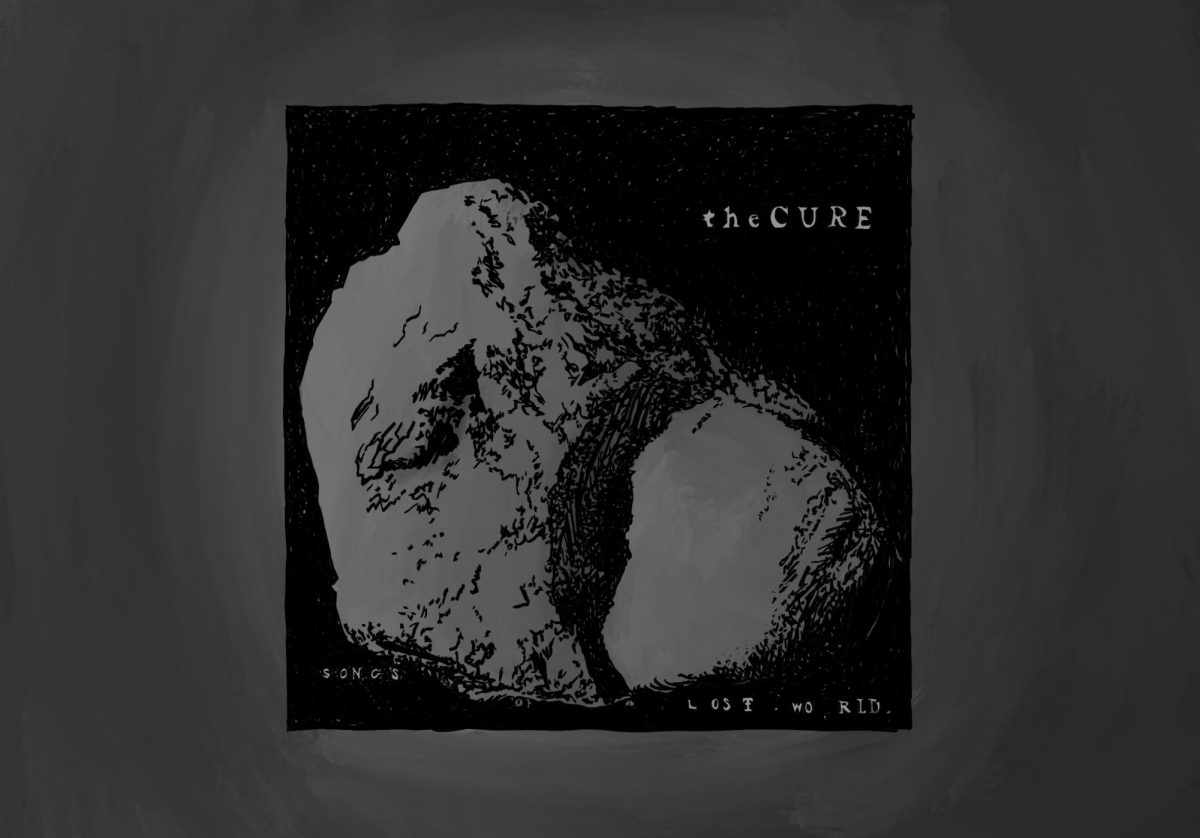After The Cure’s last release, “4:13 Dream” in 2008 and the album’s subsequent tour, the band began to fall apart. Robert Smith, frontman and genius behind The Cure — as well as its only continuous member –– seemed to go into hibernation, only to reconvene with a new iteration of the group in 2011. The Cure was a live touring act for almost a decade, playing its greatest hits on the road in its hallmark three-hour shows while perennially teasing new music along the way. Smith and The Cure have finally delivered on the 13-year promise, giving fans the new powerhouse “Songs of a Lost World.”
The ambience set by the album title certainly lines up with its songs — Smith, the sole writer credited on the album, encapsulates rage, despair and fear across the eight-track record. Gone are the band’s New Wave kooky dance tracks like prior hits “Just Like Heaven” and “The Lovecats.” Album opener “Alone” blasts heavy bass out of the gate. The over six-and-a-half-minute song features solemn piano and synthesizers that roll out the carpet for Smith’s eventual vocal entrance. He soars into a foreboding underscore with his iconic tenor, coming in like a phantom on the words, “This is the end of every song that we sing” — lyrics adapted from the Victorian poet Ernest Dowson. Through its 49-minute runtime, “Songs of a Lost World” takes the listener on a journey through Smith’s musings on life, death, regret and the slow passage and decay of time — thoughts so deeply reminiscent of the poet that inspired the record’s opening song.
The album feels deeply personal, and that intimate connection comes alive in Smith’s vocal energy, which is colored by a deep longing. In the album’s second track, “And Nothing Is Forever,” he muses on his age, the finite nature of all things and the comfort of having someone alongside him to see it all. He sings, “I know, I know / That my world has grown old / But it really doesn’t matter / If you say we’ll be together,” masterfully decreasing his intensity through each thought, vocally embodying the solace of having a partner to see you through life’s trials.
This endearing quality turns to heartbreak in “I Can Never Say Goodbye,” a song penned for his late older brother to whom he owes his love of music. “Something wicked this way comes / From out the cruel and treacherous night / Something wicked this way comes / To steal away my brother’s lifе / Something wicked this way comes / I can nеver say goodbye,” the guilt of an unfinished story with a loved one cuts deeper than a knife; it is heartbreak in its purest essence.
Many of his ruminations have their root in mortality and aging. In the album’s final track, “Endsong,” Smith sings “It’s all gone, it’s all gone, it’s all gone / Left alone with nothing at the end of every song” not with enmity, but a solemn acceptance of these goodbyes. Perhaps the record’s titular “Lost World” is not meant to mirror our own world — our political strife, the decaying planet. The world Smith paints through his songs is truly lost, all that is left are memories and contemplation over all that came before.
“Songs of a Lost World,” though marked by melancholy and solemnity, has breathed a new life into The Cure. Its musing does not become overly complicated or lost through mixed, abstract messages that hide behind the guise of mysterious artistry — on the album, everything is laid bare. If, as teased, the record is to be the first part of a trilogy, it has set the bar magnificently high. But if this musical triumvirate does not come to pass and this truly marks the end of the songs The Cure will sing, then we’re going to sing it with them.
Contact Joe Paladino at [email protected].






















































































































































